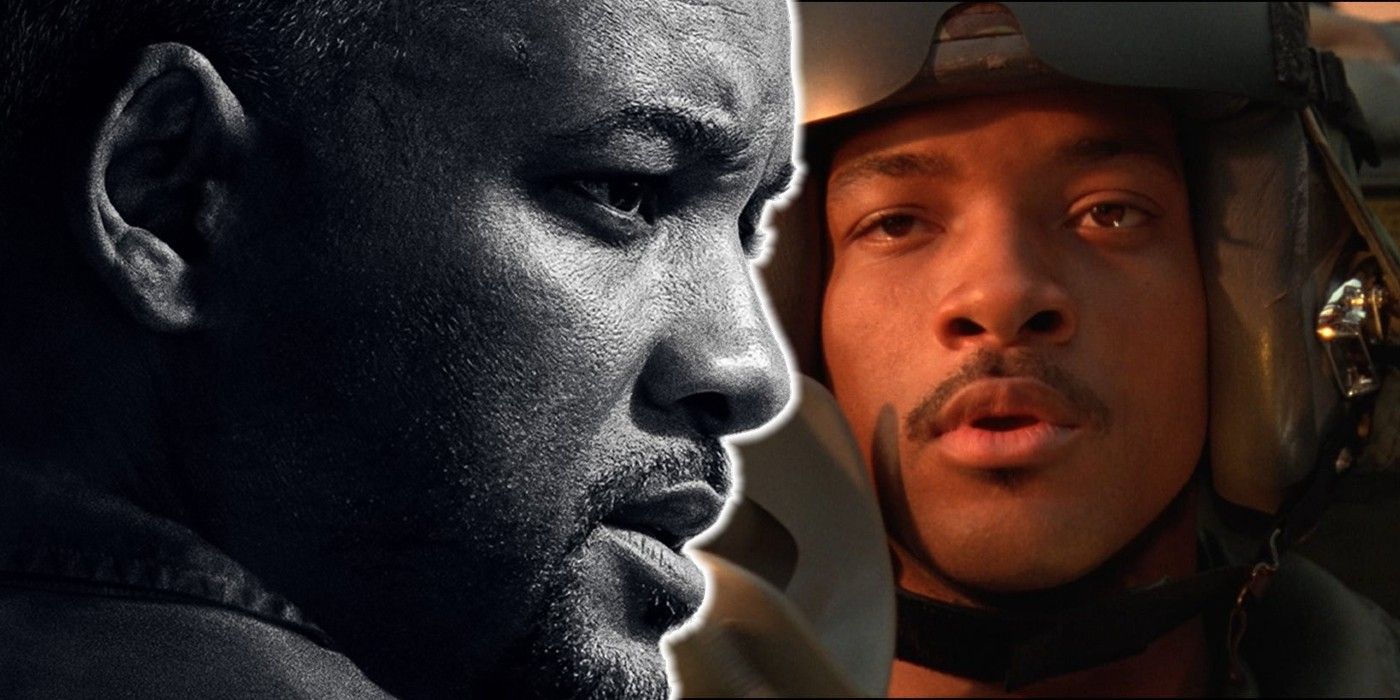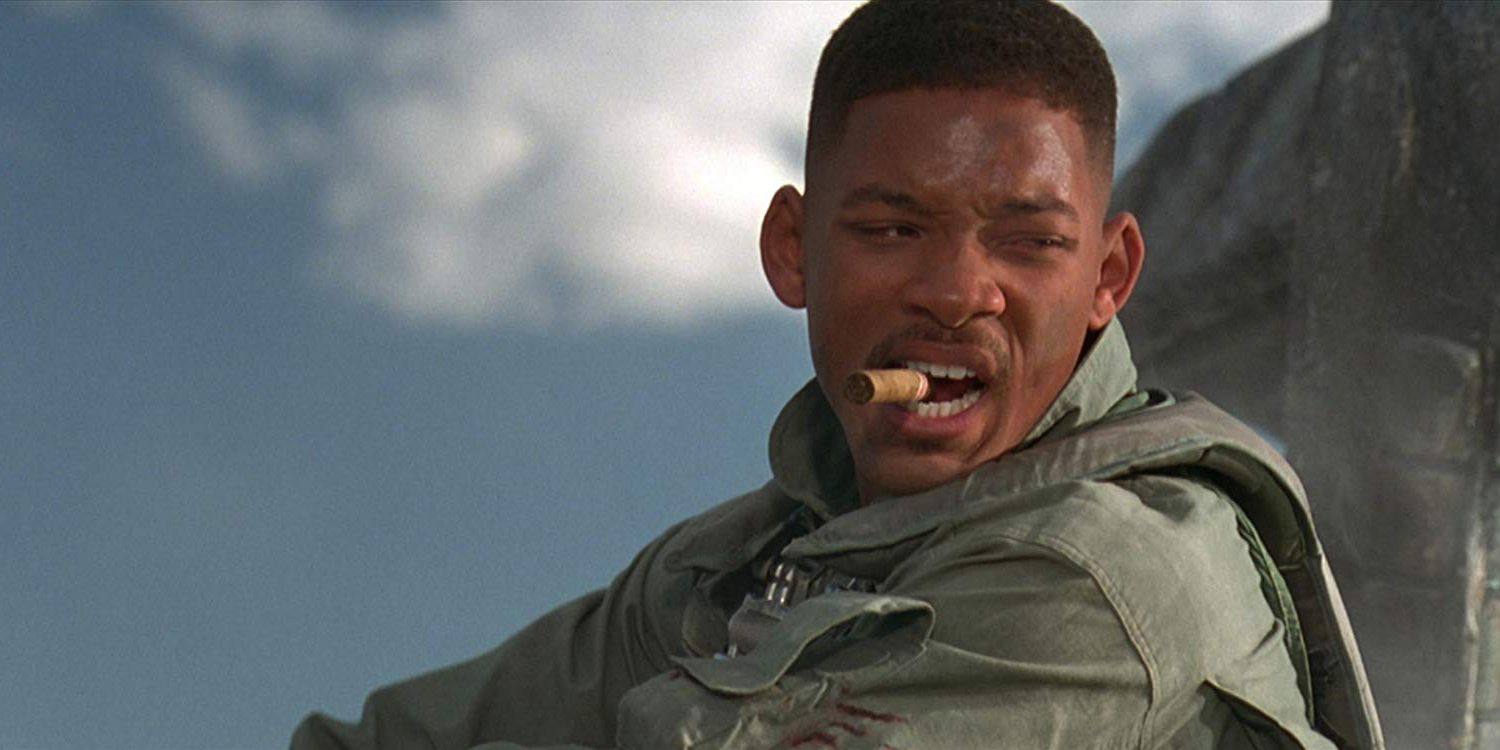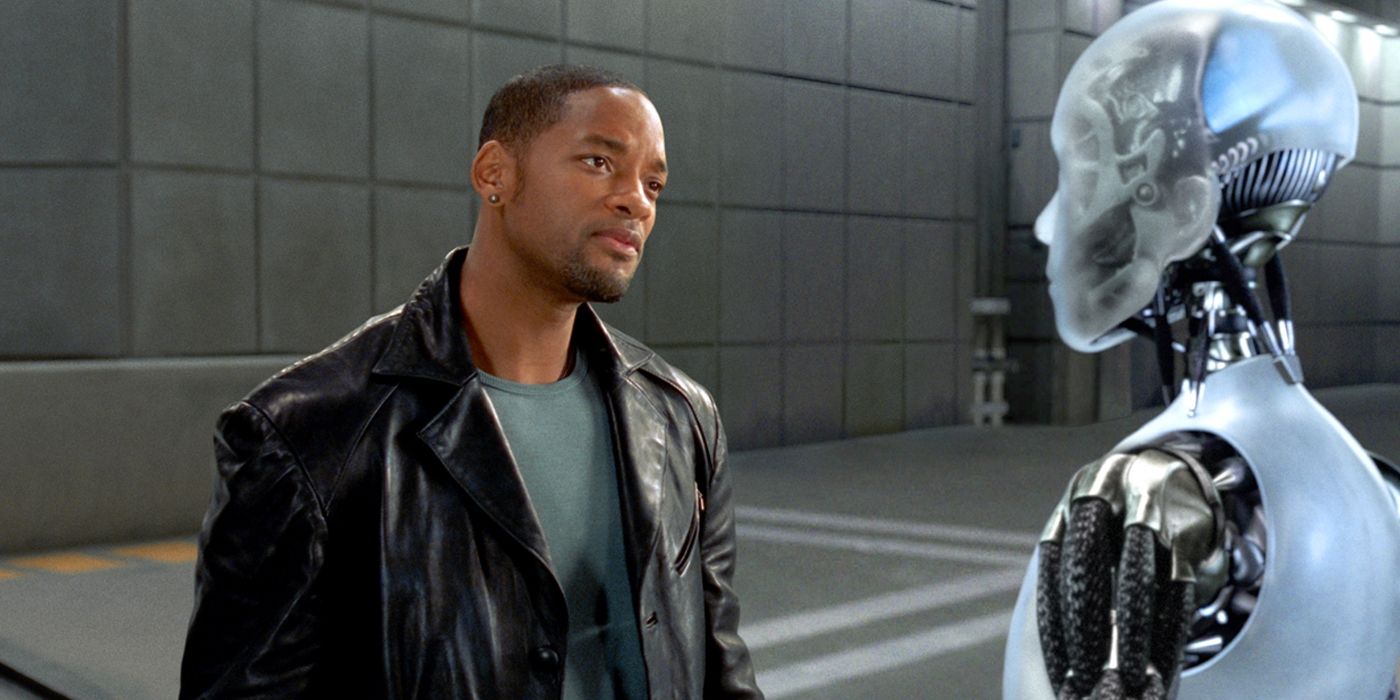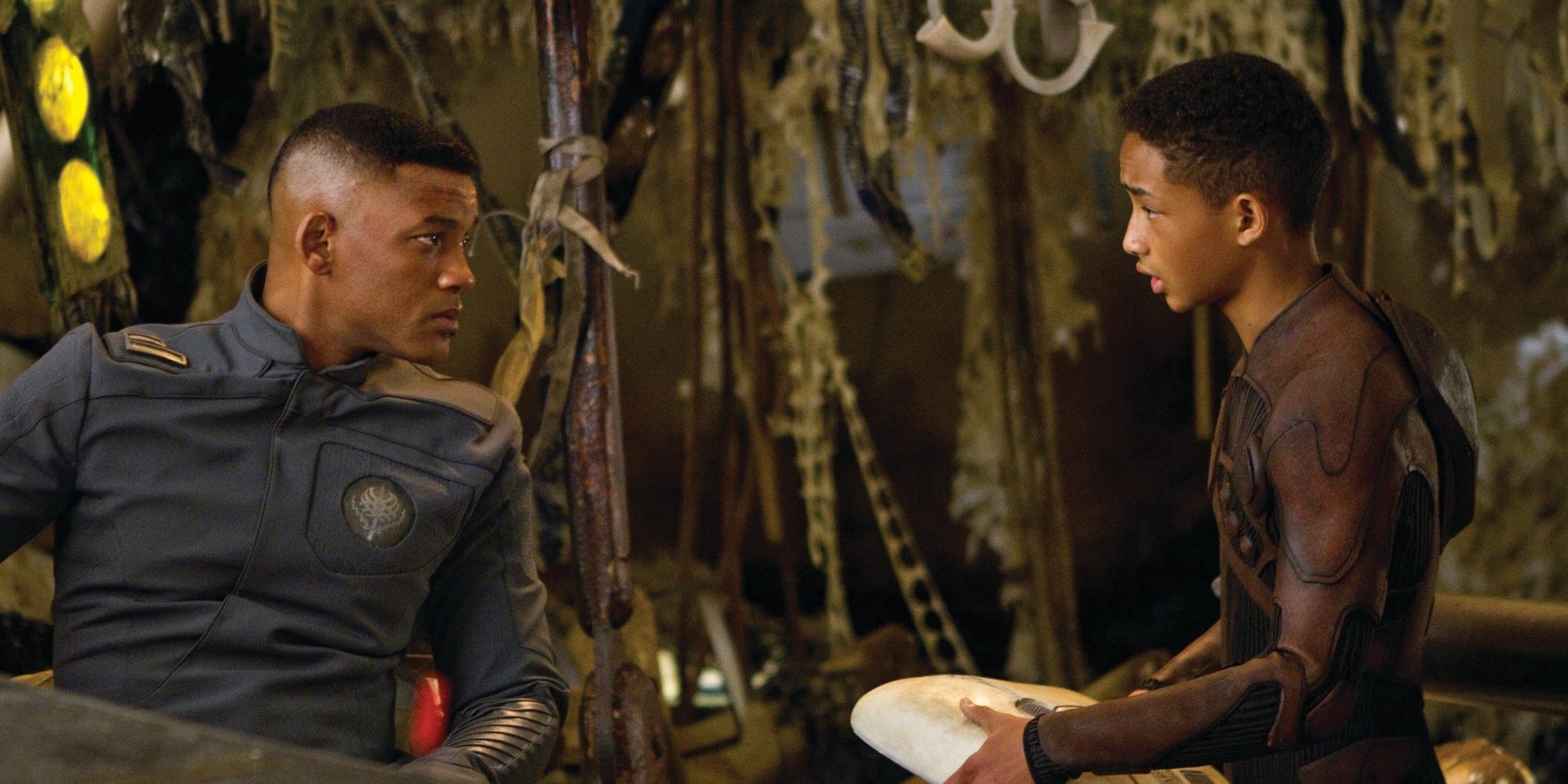Will Smith became a box office superstar thanks to his '90s sci-fi blockbusters, but his outings with the genre have seen mixed results since then. At the height of his glory, there were few other actors who could match Smith for his commercial prowess. The rapper-turned movie star was not only immensely popular, he was (just as importantly) a consistent draw, and still holds the distinction of being the only actor to have eight of his films gross over $100 million in the U.S. in a row.
Smith has lost some of his box office luster in the 21st century due to a few smaller misfires and a pair of expensive flops in the forms of After Earth and last year's Gemini Man. Despite pairing Smith with big-name directors (M. Night Shyamalan and Ang Lee) and high-concept sci-fi premises, both of those would-be blockbusters failed to impress critics and fell well short of grossing $100 million domestically. In the case of Gemini Man, it lost an estimated $111.1 million, putting it in the company of 2019 box office bombs like Cats, Terminator: Dark Fate, and X-Men: Dark Phoenix.
Obviously, a lot changed in-between Smith making his name as the king of '90s sci-fi cinema and starring in a sci-fi movie that lost over $100 million two decades later. However, in order to explain what happened, it's best to start at the beginning.
Will Smith Was a Sci-Fi Movie Star
After breaking out on television with The Fresh Prince of Bel-Air in the first half of the '90s, Smith made the transition to starring in movies thanks to Michael Bay's Bad Boys in 1995. A year after that, Smith played the Marine pilot Captain Steven Hiller in Roland Emmerich's Independence Day, an alien invasion tentpole that went on to become the highest-grossing title of 1996 and the second highest-grossing ever at that time, just behind Jurassic Park. One year later, he returned to the sci-fi genre with another home run in the form of Men in Black, an adaptation of the comic books that paired him opposite Tommy Lee Jones and made well over $500 million worldwide (an impressive feat today, much less in 1997).
In retrospect, pairing a charismatic leading man like Smith with crowd-pleasing sci-fi action movie setups seems like a no-brainer, but at the time the success of these films came as more of a surprise. Their performances led Smith to continue working in the genre, beginning with Wild Wild West in 1999. Unfortunately, in spite of the many surface-level similarities between that movie and Men in Black (both were directed by Barry Sonnenfeld, adapted from off-beat source material, and cast Smith as the younger, hipper half of an interracial buddy duo), the latter bombed at the box office and mostly left audiences bewildered by its bizarre mashup of steampunk sci-fi, western action-comedy, and just plain horniness. That it came out the same year as The Matrix - one of the most influential sci-fi films in modern times and a movie Smith was originally approached to star in, but passed on - was only more salt on the wound.
What Happened to Will Smith's Sci-Fi Movies
While Smith has since admitted he regrets making Wild Wild West, he's also insisted Keanu Reeves was perfectly cast in The Matrix and the film wouldn't have become what it did if he'd signed on to play Neo. Still, it's difficult not to wonder what would've really come to pass, had Smith collaborated with the Wachowski sisters on their breakout project. Instead, he returned to sci-fi in 2002 for Men in Black II, a sequel that performed well enough at the box office to get a followup (Men in Black III, released ten years later), but was far from a mega-hit and was criticized for lacking the inventiveness and intelligence of its predecessor. Smith went back to the sci-fi well once again in 2004 for I, Robot, a movie that re-imagined Isaac Asimov's source material into the type of crowd-pleaser Smith made his name with, but with enough changes (like giving Smith a young sidekick played by Shia LaBeouf, rather than an older male costar) to keep the formula feeling fresh. Much like Men in Black II, I, Robot did okay overall, but fell short of the bar set by his biggest hits from the '90s.
This downturn can be blamed on a couple of factors. Firstly, both of these films were attempts to keep the blockbusters trends from the '90s going at a time when the landscape was quickly changing and superhero movies were in the early stages of taking over. Secondly, they were made at a time when the idea of a "movie star" as a bankable thing was already in decline and franchises were steadily becoming something audiences were more invested in than A-listers. Smith was well aware of this, which is why he followed those films with a more dramatic sci-fi offering in the form of 2007's I Am Legend (an adaptation of author Richard Matheson's post-apocalyptic novel) and, five years after that, donned his black sunglasses once again for Men in Black III, an installment that fleshed out the backstory for Jones' Agent K (with Josh Brolin playing a younger version of the character). Tellingly, those movies performed better - both financially and critically - than Smith's sci-fi movies in the early '00s.
Around the same time, Smith teamed up with writer Gary Whitta for After Earth, a movie intended to launch a shared universe that, had it come to pass, would've rivaled the MCU for scale and scope. As detailed in Ben Fritz's book The Big Picture: The Fight for the Future of Movies, Smith approached Sony with plans to not only make After Earth, but also a sequel, TV shows (cartoon and live-action), comic books, and much more, all as part of a multi-platform brand he dubbed 1000 AE. This was not only part of Smith's efforts to remain relevant in the era of the franchise, but to also give his son and costar, Jaden Smith, a launchpad for his own movie career. Of course, it didn't work out, and Smith's dreams of a cinematic universe were sunk by After Earth's poor reviews and unflattering performance at the box office.
By comparison, the failure of Gemini Man (the first sci-fi film Will Smith starred in following After Earth) had less to do with its star and more to do with the actual project. The Gemini Man concept has been around since 1997 and passed through several hands (evolving from a '90s sci-fi thriller to a post-9/11 take on the genre), which is probably why the story in the final film version is somewhat flavorless and the movie is more noteworthy for its use of high frame rate photography and CGI to create a young Smith clone. You can still see why Smith would be drawn to the project; after his failure on After Earth, a technically ambitious Ang Lee venture (a la his Oscar-winning hit Life of Pi) surely sounded more promising than another sequel or would-be shared universe starter. And while Gemini Man failed, both it and After Earth did so in interesting ways, as opposed to being the results of studios playing things safe. If anything, this suggests, after all these years, Smith may yet have more to bring to the sci-fi table.




